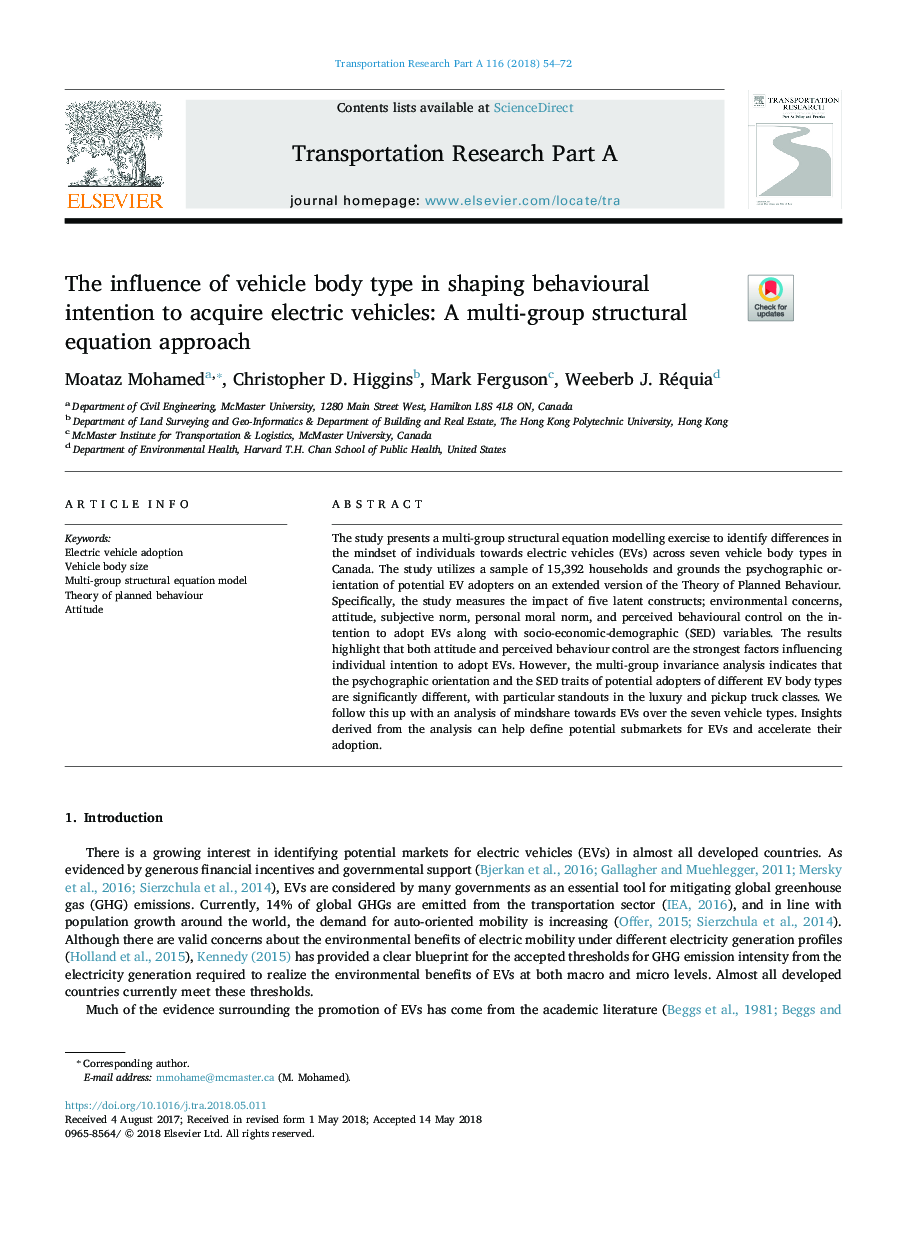| Article ID | Journal | Published Year | Pages | File Type |
|---|---|---|---|---|
| 6779687 | Transportation Research Part A: Policy and Practice | 2018 | 19 Pages |
Abstract
The study presents a multi-group structural equation modelling exercise to identify differences in the mindset of individuals towards electric vehicles (EVs) across seven vehicle body types in Canada. The study utilizes a sample of 15,392 households and grounds the psychographic orientation of potential EV adopters on an extended version of the Theory of Planned Behaviour. Specifically, the study measures the impact of five latent constructs; environmental concerns, attitude, subjective norm, personal moral norm, and perceived behavioural control on the intention to adopt EVs along with socio-economic-demographic (SED) variables. The results highlight that both attitude and perceived behaviour control are the strongest factors influencing individual intention to adopt EVs. However, the multi-group invariance analysis indicates that the psychographic orientation and the SED traits of potential adopters of different EV body types are significantly different, with particular standouts in the luxury and pickup truck classes. We follow this up with an analysis of mindshare towards EVs over the seven vehicle types. Insights derived from the analysis can help define potential submarkets for EVs and accelerate their adoption.
Related Topics
Physical Sciences and Engineering
Engineering
Civil and Structural Engineering
Authors
Moataz Mohamed, Christopher D. Higgins, Mark Ferguson, Weeberb J. Réquia,
